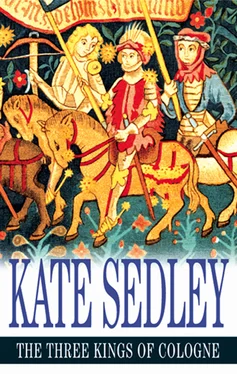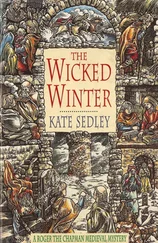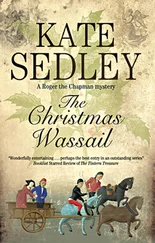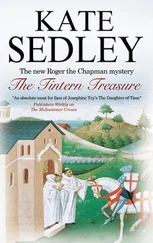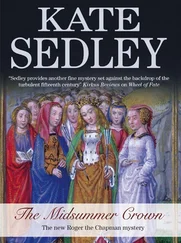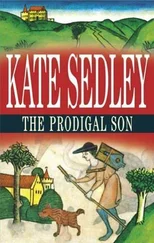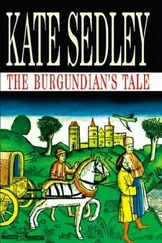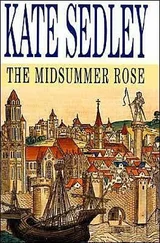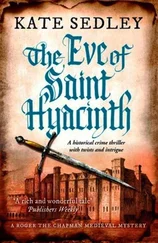Kate Sedley - The Three Kings of Cologne
Здесь есть возможность читать онлайн «Kate Sedley - The Three Kings of Cologne» весь текст электронной книги совершенно бесплатно (целиком полную версию без сокращений). В некоторых случаях можно слушать аудио, скачать через торрент в формате fb2 и присутствует краткое содержание. Жанр: Исторический детектив, на английском языке. Описание произведения, (предисловие) а так же отзывы посетителей доступны на портале библиотеки ЛибКат.
- Название:The Three Kings of Cologne
- Автор:
- Жанр:
- Год:неизвестен
- ISBN:нет данных
- Рейтинг книги:5 / 5. Голосов: 1
-
Избранное:Добавить в избранное
- Отзывы:
-
Ваша оценка:
- 100
- 1
- 2
- 3
- 4
- 5
The Three Kings of Cologne: краткое содержание, описание и аннотация
Предлагаем к чтению аннотацию, описание, краткое содержание или предисловие (зависит от того, что написал сам автор книги «The Three Kings of Cologne»). Если вы не нашли необходимую информацию о книге — напишите в комментариях, мы постараемся отыскать её.
The Three Kings of Cologne — читать онлайн бесплатно полную книгу (весь текст) целиком
Ниже представлен текст книги, разбитый по страницам. Система сохранения места последней прочитанной страницы, позволяет с удобством читать онлайн бесплатно книгу «The Three Kings of Cologne», без необходимости каждый раз заново искать на чём Вы остановились. Поставьте закладку, и сможете в любой момент перейти на страницу, на которой закончили чтение.
Интервал:
Закладка:
She looked apologetic. ‘I’m afraid I haven’t been of much use to you, young man, in your quest for the truth. It’s obvious, of course, that one of those three men — the one she was seen with that day — murdered Isabella. But until you can discover who they were, I don’t give much for your chances of ever finding the poor girl’s killer. And after twenty years …’ Emilia broke off, shrugging.
‘I have been told that one of them was a goldsmith and gave her the jewellery she was still wearing when her body was uncovered.’
The nurse raised her eyebrows.
‘Then you have already found out more than I know,’ she acknowledged, not, I thought, altogether pleased.
I called to Hercules, who opened one bleary eye a slit before closing it again. While I was busy rousing him and fastening the leather belt around his neck, Emilia Virgoe seemed to be lost in thoughts of her own. As I straightened up, she said, ‘What you were saying, about girls liking to boast of their conquests, has made me remember Isabella’s maid, Jane … Jane …’ She wrinkled her nose in an effort of memory. ‘Jane Honeychurch! That was it! An ugly, mousy little thing about Isabella’s own age. Very quiet. Frightened of her own shadow. I don’t know where she came from. Bristol, I think. Yes … Master Linkinhorne brought her home with him about a year before Isabella disappeared, and I believe I’m right in saying that it was after one of his trips to the city. What happened to her in later years, I really don’t know. In fact, I’d completely forgotten her until this minute. But I suppose it’s possible that Isabella could have confided in her. Mistress and maid, what could be more natural?’
I nodded. ‘Highly probable! Indeed, almost certain, I should say. And you have no idea at all where this young woman might be now?’
Emilia shook her head. ‘But there’s one thing I can tell you. Jane Honeychurch won’t be a young woman any more. If she’s still alive, she’ll be forty or a little over. The same age that Isabella would have been had she lived. Indeed, the age I have always assumed she was until a day or so ago.’
‘And of course she — Jane — might have married,’ I added gloomily.
‘There is that,’ my hostess concurred, ‘but I wouldn’t stake my life on it. She was not a prepossessing girl. On the other hand,’ Emilia added with a certain amount of bitterness, ‘good looks aren’t necessarily everything. I’ve known some very odd-featured women who have not only captured husbands, but who have been the object of those husbands’ adoration.’
I guessed from this that Emilia Virgoe had never married. As a young woman she must have been very pretty, but for one reason or another had failed to ensnare a man. It had plainly galled her to see other, far less attractive females experiencing no difficulty in finding mates. Perhaps her attitude to love explained matters.
I thanked her again for her patience and time, adding, ‘You see, you have been of great help to me, after all. If I can only find this Jane Honeychurch, I might discover the names of Isabella’s beaux.’
‘I wouldn’t pin your hopes on it,’ the nurse advised me. ‘Even if you do find the woman, there’s nothing to say that Isabella ever told her anything more than she told anyone else. Where will you go now?’
‘To Westbury village, in case there is anyone still living there who can recall seeing Isabella on the day she disappeared and can add anything to what I already know.’
‘And that is?’
‘That it was a cold, wet and windy March day and both Isabella and her companion had the hoods of their cloaks pulled well forward to conceal their faces.’
The nurse smiled and said, ‘I wish you luck.’ She nobly refrained from repeating a warning about the length of time involved or from adding a rider concerning the general unreliability of people’s memories over a span of twenty days, let alone the same number of years. But she did wonder aloud, as I had wondered to myself, about the advisability of searching out the truth. ‘After so lengthy a period, does it really matter now?’
I spoke sternly, partly to appease my own conscience.
‘Where murder is involved, isn’t it everyone’s duty to bring the murderer to book if he can?’ I asked. ‘The taking of human life is surely the most heinous of all crimes.’
Emilia Virgoe laughed shortly. ‘It depends, doesn’t it, whether you are taking life for your own reasons or for those of your overlord, who commands you to do so on his behalf.’
I decided it was definitely time to go. We were getting into deep water; on the borderline of treason. I thanked my hostess yet again and left.
I had been to Westbury once before and knew it to be little more than a scatter of cottages along the River Trym and grouped around the college, which dominated the area. There had been a monastery there in Saxon times, under the control of the then Bishop of Worcester, who had brought over twelve Benedictine monks from Fleury in France. By the time of the Conquest, however, it had fallen into decay and the monks had long gone, leaving one solitary priest to carry on God’s work. Thirty years later, another Bishop of Worcester, Wulfstan, had restored the building and re-instated the brotherhood, but further on in its history it had become a college, with secular priests who went out among the people, the control of the establishment passing into the hands of a dean and canons instead of an abbot. Its most famous — or infamous — son had been the heretic, John Wycliffe, who had held a prebendary stall there sometime in the preceding century. In recent years the building had been greatly enlarged under the auspices of Bishop Carpenter and due to the patronage of Bristol’s own William Canynges, who, before his death twelve years ago, had become first a canon and then dean of the college.
But my present visit had nothing to do with this august edifice, and instead I went knocking on the doors of cottages, asking if there was anyone who remembered a March morning, twenty years previously, when a girl by the name of Isabella Linkinhorne had been seen with a male companion somewhere in the vicinity of the village.
As was only to be expected, I was treated to blank stares, often accompanied by loud guffaws and suggestions as to what I could do with myself (and my dog), or to downright rudeness and the deepest suspicion as to my motives. I began to realize that leaving my pack at home had perhaps not been such a good idea. As a pedlar, people regarded me either as a welcome visitor or a nuisance, but not as a potential thief, poking my long nose into their homes to spy out the land with a view to robbing them later. Even Hercules failed to win friends, especially after he leaped over a fence to chase an old couple’s geese into the lane through a gate that someone had carelessly left open. Needless to say I was blamed for this catastrophe, although it was none of my doing, someone else having failed to close the gate. But in the event it proved to have a satisfactory ending, for me, at least. The old couple, angry and abusive at first, were won over by my abject apologies and willingness to help capture the errant birds, who were making a determined dash for freedom. By the time the final one was penned inside the fence again, we were all three exhausted, and the dame, taking pity on me, invited me into the cottage for a drink of ale.
‘Anything, mother,’ I gasped, ‘as long as it’s not elderflower wine.’
‘Elderflower wine?’ she screeched. ‘Got enough to do what with looking after the geese, the pig, the donkey and him — ’ she jerked her head towards the old man — ‘without wasting my time making elderflower wine. Sit down, lad, sit down! And make sure that pesky dog don’t get off his leash again.’
Читать дальшеИнтервал:
Закладка:
Похожие книги на «The Three Kings of Cologne»
Представляем Вашему вниманию похожие книги на «The Three Kings of Cologne» списком для выбора. Мы отобрали схожую по названию и смыслу литературу в надежде предоставить читателям больше вариантов отыскать новые, интересные, ещё непрочитанные произведения.
Обсуждение, отзывы о книге «The Three Kings of Cologne» и просто собственные мнения читателей. Оставьте ваши комментарии, напишите, что Вы думаете о произведении, его смысле или главных героях. Укажите что конкретно понравилось, а что нет, и почему Вы так считаете.
